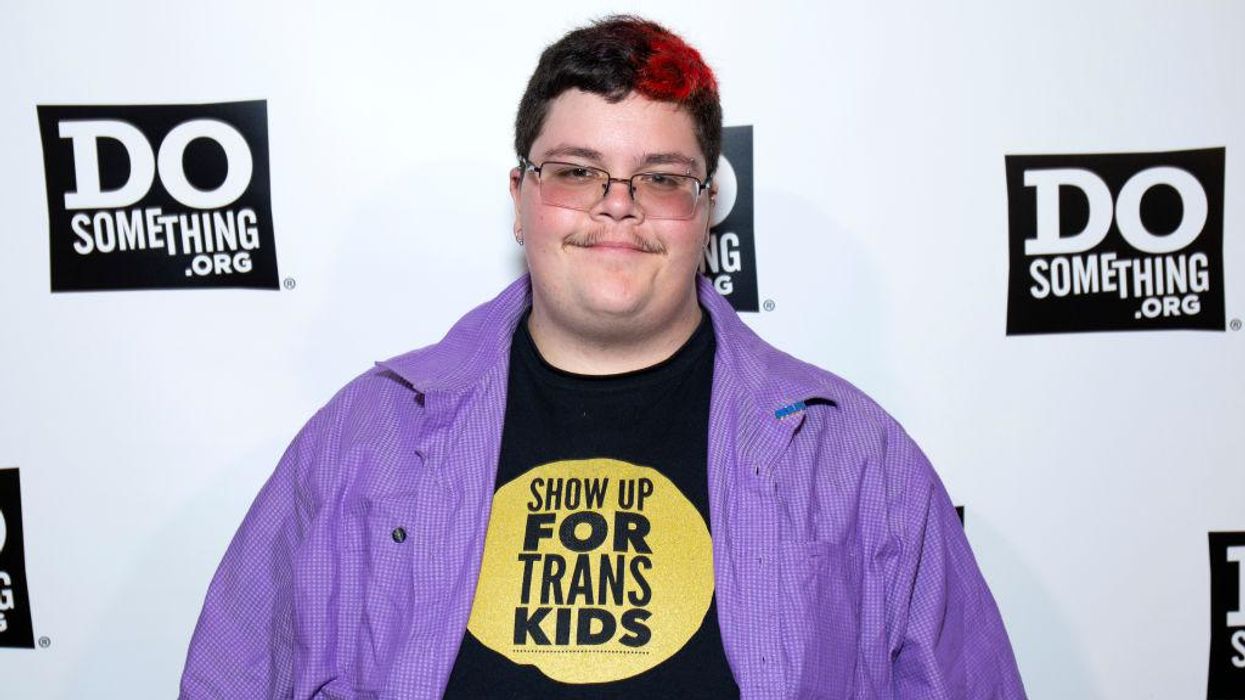
Santiago Felipe/Getty Images

The top court let stand a lower court ruling that sided with former Virginia high school student Gavin Grimm
The Supreme Court handed another victory to LGBTQ advocates this week by refusing to hear a case questioning the rights of transgender students to use bathrooms and locker rooms of their choosing.
On Monday, the top court declined a Virginia school board's request to hear a case concerning whether one of its students, Gavin Grimm, was legally entitled to use a bathroom that aligned with the student's gender identity rather than biological sex.
In an order, the court said simply, "The petition for a writ of certiorari is denied," before noting that Justices Clarence Thomas and Samuel Alito would have taken up the case. No further explanation was given.
By declining, the Supreme Court let a lower court ruling stand that prohibited Grimm's school board from forcing Grimm to use bathrooms for female students or separate unisex bathrooms. The court's decision falls in line with previous rulings on the matter, according to Forbes, and may signal the establishment of an official stance.
In 2015, Grimm, who was born a girl, sued the Gloucester County School Board over its bathroom policy after coming out as a transgender boy.
The complaint argued that the school's policy forcing transgender students to use separate bathrooms left Grimm feeling "stigmatized and isolated" and violated the Equal Protection Clause of the U.S. Constitution and Title IX, which bans discrimination on the basis of sex.
The American Civil Liberties Union, which represented Grimm in the case, lamented that the school board "continued to exclude Gavin even after he began receiving hormone therapy (which altered his bone and muscle structure, deepened his voice, and caused him to grow facial hair), obtained a Virginia state I.D. card listing his sex as male, underwent chest reconstruction surgery, obtained a court order legally changing his sex to male under Virginia law, and received a new Virginia birth certificate reflecting that his sex is male."
The Supreme Court initially agreed to hear the case in 2016 after the Fourth Circuit Court of Appeals ruled in favor of Grimm. But after the Trump administration overturned an Obama-era rule that directed schools not to discriminate on the basis of gender identity, the court changed its mind and sent the case back to a lower court for reconsideration in light of the new policy.
Last year, the Fourth Circuit again sided with Grimm in the dispute. But when the school board petitioned for the Supreme Court to finally consider the case, the top court balked.
In response to the news, ACLU senior staff attorney Josh Block said, "This is the third time in recent years that the Supreme Court has allowed appeals court decisions in support of transgender students to stand. This is an incredible victory for Gavin and for transgender students around the country. Our work is not yet done, and the ACLU is continuing to fight against anti-trans laws targeting trans youth in states around the country."
Grimm, who is now 22, added, "I am glad that my years-long fight to have my school see me for who I am is over. Being forced to use the nurse's room, a private bathroom, and the girl's room was humiliating for me, and having to go to out-of-the-way bathrooms severely interfered with my education. Trans youth deserve to use the bathroom in peace without being humiliated and stigmatized by their own school boards and elected officials."
In its petition, the school board had noted that "the question of how best to respond to a teenager who identifies with the opposite biological sex is often excruciatingly difficult."
"On the one hand, the teenager deserves and needs everyone's compassion," it said. "On the other hand, allowing the teenager to use multi-user restrooms, locker rooms and shower facilities reserved for the opposite sex raises what this Court has acknowledged to be serious concerns about bodily privacy — for the teenager and others."
The school board argued the case would be for the court an "ideal, timely vehicle" to settle the question over Title IX gender identity application. But evidently, the court thought otherwise.